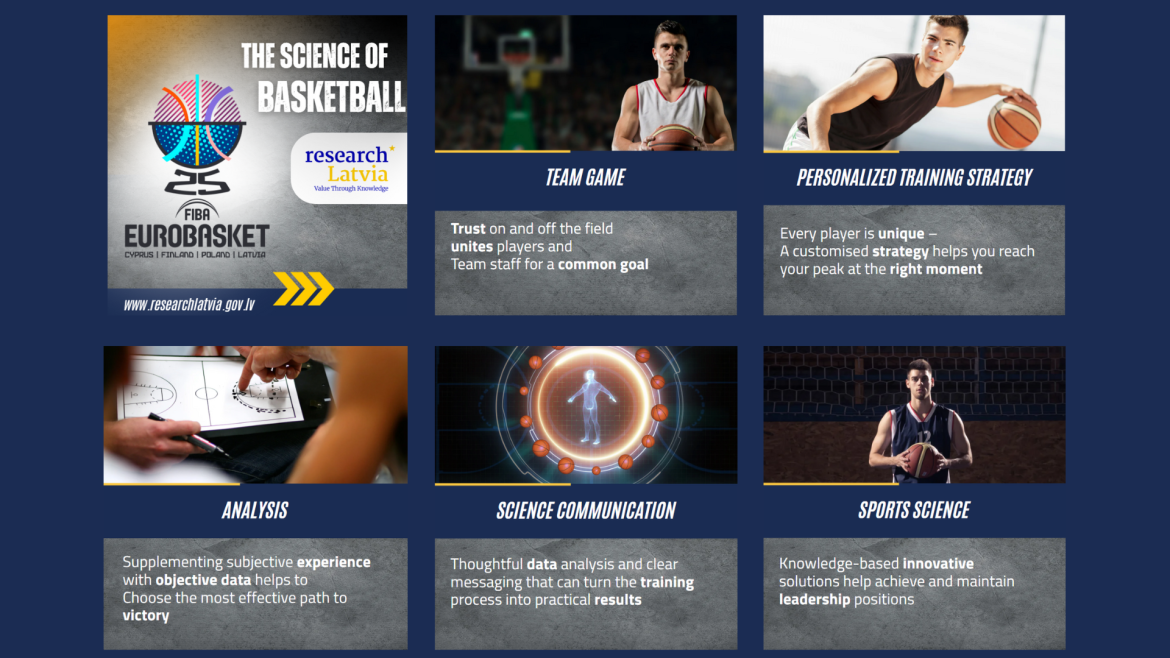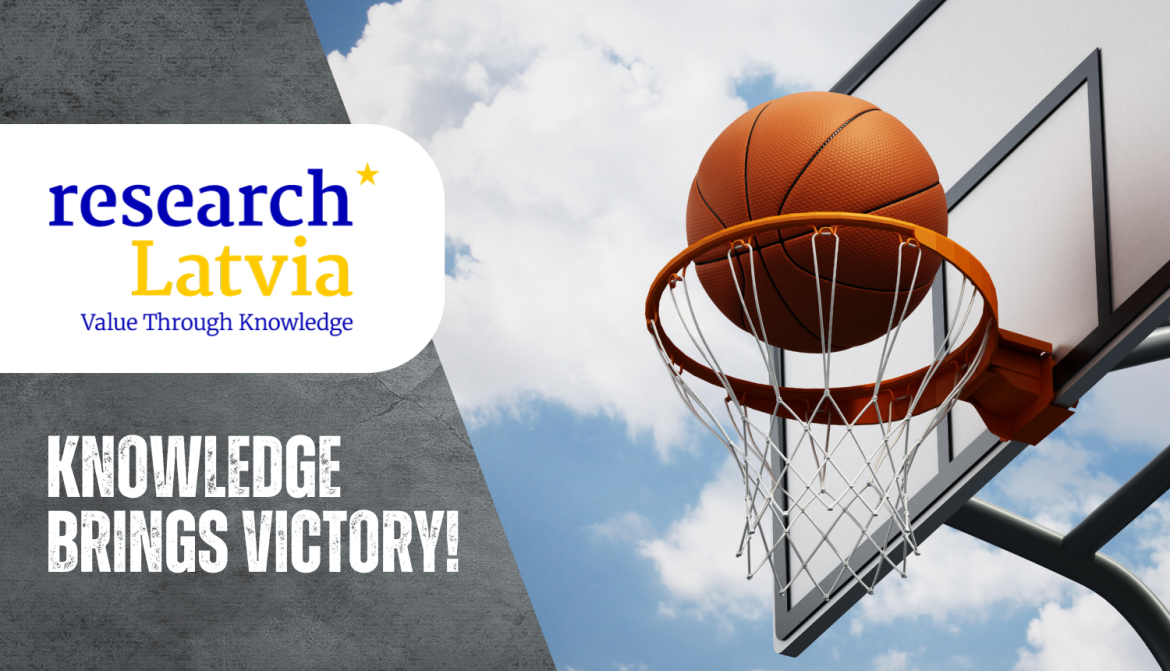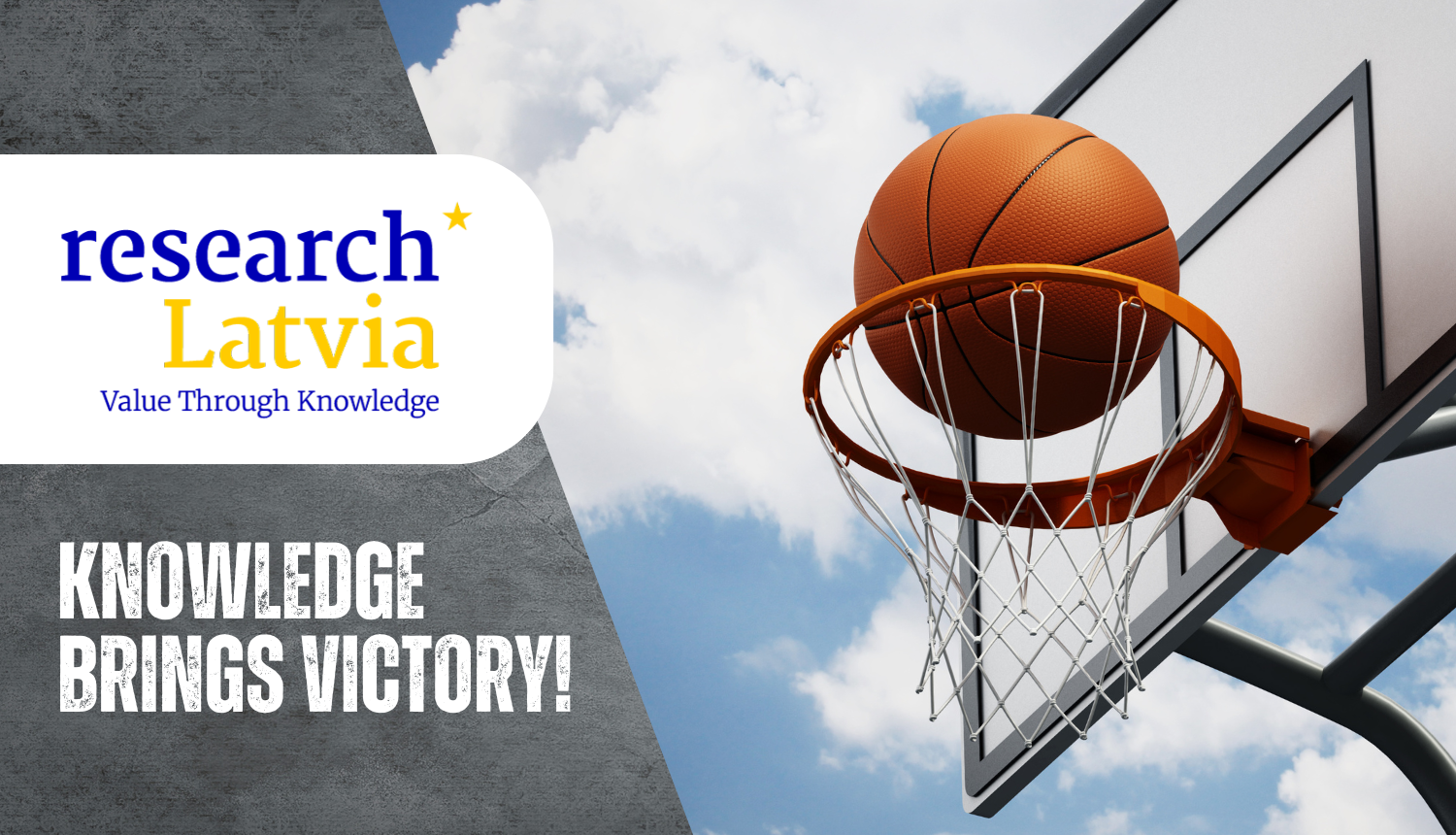Basketball is a high-intensity team sport that combines complex biomechanical and physiological principles. Physical and psychological preparation, as well as monitoring training loads, are only part of the work needed for athletes to achieve success. Before significant events such as the EuroBasket 2025 – which this year will take place in Latvia – the importance of science in the preparation process must be emphasised.

The European Championship takes place every four years. This time, it will be hosted in four countries, but the finals will be in Latvia. The group tournaments will be held in Riga, Limassol, Tampere and Katowice, but the knockout games will be in Riga.
Research → Personalized Training → Victory
Research in sports is crucial because it builds a bridge between intuition and evidence – between what "feels right" and what is supported by data. Without research, decisions would rely only on experience and subjective impressions, which in sports often means that competitors are already a step ahead, reducing the chances of achieving the best possible result.
One example of research turning into practical benefits is neuromuscular testing and the use of the Dynamic Strength Index (DSI). DSI measures the relationship between an athlete's maximal and explosive strength. It helps assess the balance of an athlete's strength abilities and serves as a foundation for designing personalised training programs.
"However, using DSI values alone is not enough – comprehensive interpretation of results and effective communication with coaches are essential. Thoughtful data visualisation and clear presentation of results make it easier to apply scientific findings in practice. The quality of communication determines how much research results truly impact training strategies and athlete performance," explains Mg. biol. Zane Šmite, researcher at the University of Latvia's Faculty of Medicine and Life Sciences, specialist in sports and health sciences, and diagnostics expert at Kaizen Gym.
More thoughtful, More Precise, and More Effective Trainings
In performance evaluation, so-called invisible monitoring is being used more frequently. This method collects data during training and games with sensors that measure external load (e.g., movement intensity and distance covered) and internal load (e.g., heart rate). It provides insights into an athlete's fitness and changes in fatigue with minimal interference and without additional testing.
Athletes and professional teams worldwide increasingly rely on modern technologies to make training more effective. In the Latvian men's basketball team, we also regularly perform various tests and apply "invisible monitoring" to track player health and readiness.

Although basketball is a team sport, each of the twelve players is unique and requires an individual approach. Data analysis and physiological measurements not only help monitor workload but also:
- personalise training programs,
- ensure peak physical condition at the right time,
- reduce the risk of injuries.
"By combining all this information, we can make more objective and evidence-based decisions and ensure that every player is in their best possible form for the European Championship," says Oskars Ernšteins, physical performance coach of the Latvian men's national basketball team.
Zane Šmite highlights the importance of research in sports:
"Scientific research is the foundation of progress in sports. Good practice should be based on well-established and time-tested results, but to maintain leadership and continue developing, evaluating the latest studies and creating innovative solutions is crucial. At the same time, critical thinking is essential because not every new technology is scientifically validated, and one must carefully assess which ones can truly help improve performance."
By applying sports science methods in basketball, it becomes possible to create an environment where decisions about exercise selection, training duration, and intensity are based on objective data obtained through scientifically validated technologies. This approach helps reduce subjectivity in decision-making and becomes a key tool in achieving higher performance and reaching goals.
Knowledge brings victory!
Source: Šmite, Z., Paiķis, A. & Plakane, L. (2024). Data Visualization for Dynamic Strength Index: A Qualitative Approach for Enhanced Interpretation and Decision-Making .
The content of the article was consulted by Oskars Ernšteins, physical training coach of the Latvian men's basketball team, and Zane Šmite, M.B.A., a researcher in sports and health sciences at the Faculty of Medicine and Life Sciences of the University of Latvia and a diagnostic specialist at Kaizen Gym.


